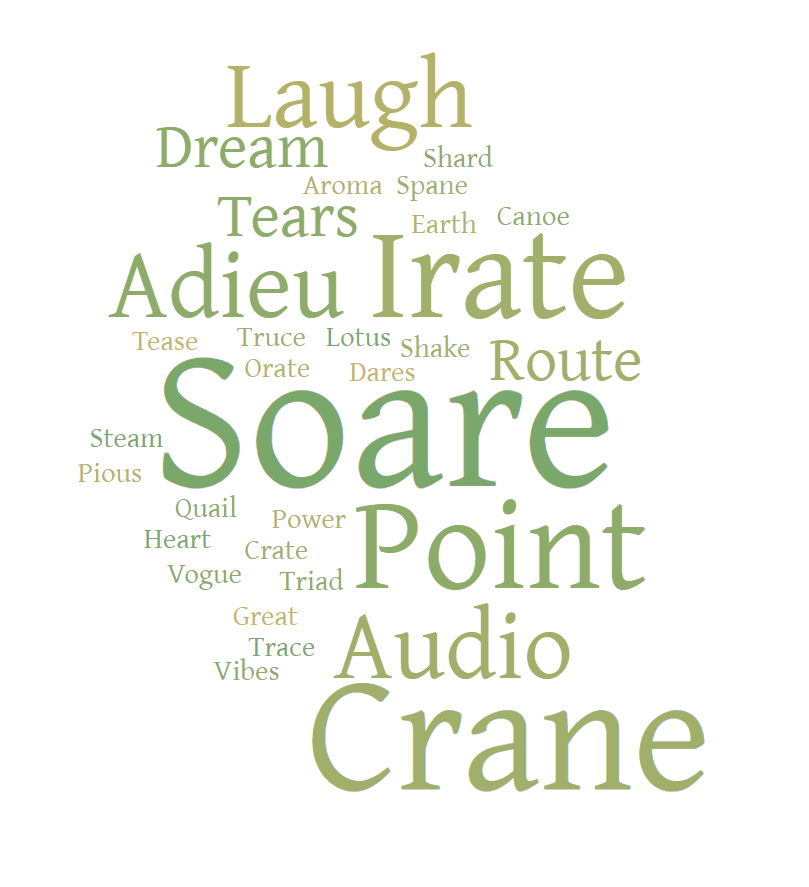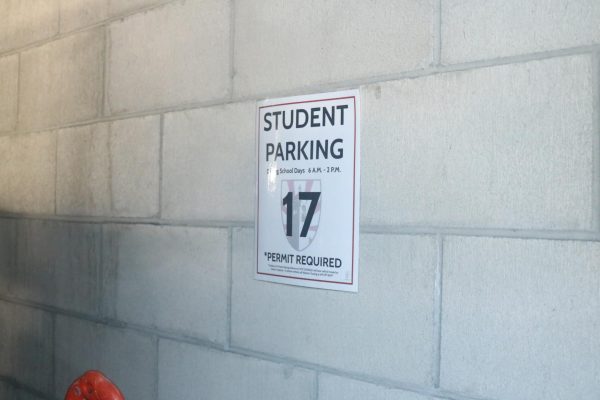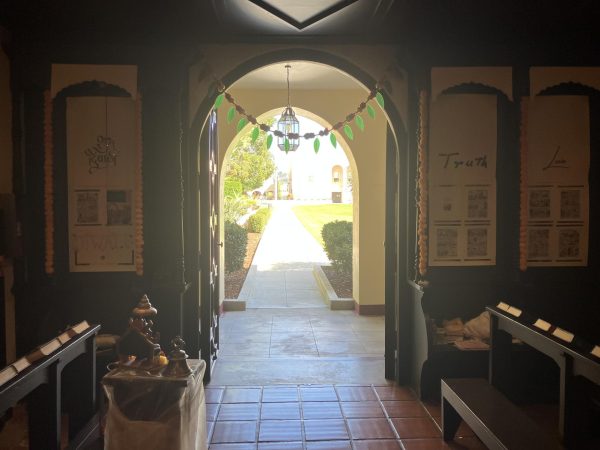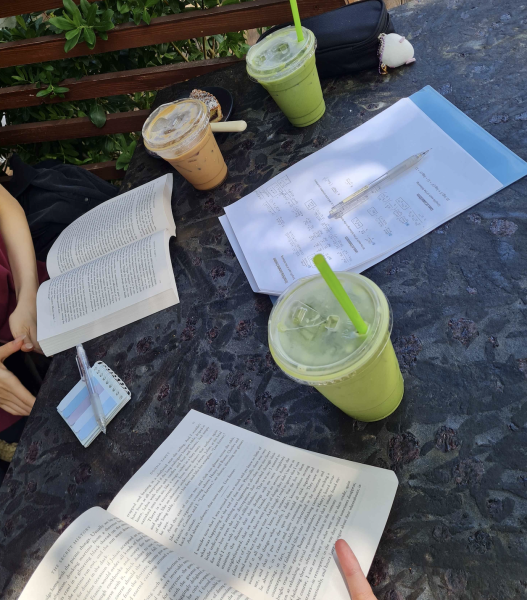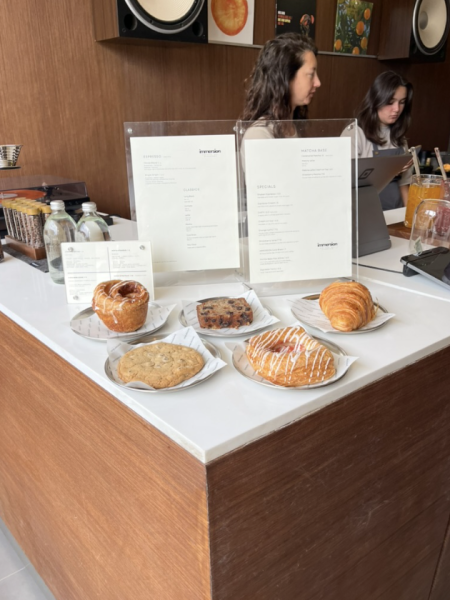Around the World-le
Many Wordle players have starting words that they use for the daily puzzle. Here are some common ones that Bishopians use.
It’s taken the world by storm, gray, yellow, and green boxes and all. The sudden hit game Wordle has gone viral, uniting people of all ages. What made Wordle popular, so much so that Bishop’s students and faculty alike can be heard discussing the newest puzzle amongst themselves during Milk Break or lunch?
Wordle is a relatively simple word game. Each day, players have six tries to guess a randomly generated five letter word. Following each guess, players receive feedback in the form of colored boxes to guide their next attempt: a gray box means the letter is not in the word; a yellow box means the letter is in the word but in the incorrect position; a green box means the letter is in the word and the correct spot.
Initially, software engineer and Wordle creator Josh Wardle, who named the game after his own last name, created the game to play with his partner, Palak Shah. Wardle told the New York Times that he “wanted to come up with a game that she would enjoy,” after playing the New York Times Spelling Bee and daily crossword puzzles with each other in 2020. Wardle debuted the game to members of his family via WhatsApp before it launched to the public in the fall of that year, and the rest is history.
With just 90 players on November 1, 2020, Wordle now surpasses 3 million players, who tend to come back each day for their daily dose of the game. In mid-December, Wardle added a sharing feature, which provided a way for players to compare results without spoiling the solution to each day’s puzzle. This helped lead to the formation of a community around the game, especially in the face of the COVID-19 pandemic, and boosted its popularity on social media platforms such as Twitter and TikTok.
For many, Wordle’s bare-bones nature is like a breath of fresh air, breaking conventions of many other modern internet games. Wardle told NPR that this choice was intentional, and that he “specifically rejected a bunch of the things you’re supposed to do for a mobile game.” Wardle mentioned, “The rejection of some of those things has actually attracted people to the game because it feels quite innocent and it just wants you to have fun with it.” Before it was purchased by the New York Times late January for an “undisclosed price in the low-seven figures,” Wordle was based solely on a minimalistic website: no ads or popups, no messages asking for subscriptions or paywalls blocking players from the full experience.
While many other game developers hope to retain their users by fueling off addictive behavior, such as unlimited play or notification reminders, Wordle only has one puzzle a day. Wordle player Sienna Li (‘24) believes the imposed limit is what makes the game stand out. “Nothing about Wordle stands out much at first glance, but I think that same simplicity is also what makes it special,” she said. “The challenge factor of such a simple game just seems appealing to me, and playing it with other people gives it an edge of competitiveness which also gives me motivation to keep going.” Marina Khoury (‘24) agreed, mentioning that, “I wouldn’t say Wordle is addicting by virtue of its once-daily accessibility. Though I log in to Wordle every day, I don’t spend more than ten minutes on it, unlike other games or social media.”
Serena Zhang (‘24) recalled watching Wordle’s rise to fame. She remembered starting her Wordle journey in mid-January. “I told a friend about it,” she said, “And they were like, ‘Oh yeah, it’s blowing up all over TikTok!’” Since then, Serena saw Wordle more and more across various apps, including YouTube videos discussing strategy and starting words. “It kind of blew up.”
Wordle has also amassed a host of remakes and spinoffs. Bhadra Rupesh (’24) enjoys playing Nerdle, a math variant of Wordle in which players have six attempts to determine a sum through an expression using operations such as addition, subtraction, multiplication, and division. “I think Nerdle is fun, although a fair bit more difficult than Wordle because it has a longer character limit,” she said. “Hello Wordl,” another Wordle-like game, “is also fun to play because you can try unlimited words and can try words with up to eleven letters, which is a nice challenge.”
Other popular variants include Absurdle (a version of Wordle that attempts to prolong a game as long as possible by choosing a solution word as you play), Worldle (in which the objective is to guess the country or territory based on its silhouette), and Wordle Unlimited (basically Wordle that allows players to have an unlimited number of plays each day). Serena, an avid Taylor Swift fan, also mentioned enjoying Taylordle, a Wordle variant created by the Holy Swift podcast.
Some Wordle players do not play variants that have stemmed from the original at all. This is the case for History teacher Ms. Abby Perelman, who mentioned that,“I don’t play the Wordle knock-off games because I feel like the original Wordle satiates me. Also, one of the main reasons I keep playing Wordle is the social aspect; my friends don’t play the knock-offs, so I don’t feel compelled to play them.”
A similar ideology holds true for Sienna, who holds more creative spin offs of Wordle in higher regard. Sienna said that, “Pure knockoff Wordle games, such as the ones that function exactly the same as the original game, just with unlimited words aren’t my favorite to be completely honest. However, games like Nerdle, which takes the functionality of Wordle and spins it into an equation game is something I respect and find rather fun. Although I’m guilty of playing some unlimited Wordle knockoffs, I still find myself respecting the more creative ones more.”
Since the New York Times Company bought Wordle, there have been an outcrop of rumors and theories around players. “There’s been a rumor that ever since the Times purchased Wordle, the Wordle words have been a lot harder to guess. I partly agree with it; it’s kind of weird because they used to be everyday words that you are sure you know the meaning of, but now I have to look up the word to see what it meant,” reflected Serena. “Normally, it would’ve been just a simple word, and that’s what made Wordle so nice. It was easy, and you didn’t have to stress about it. Now, it’s a lot more obscure.”
Although it is true that many New York Times Wordle solutions have been particularly challenging for many—standouts include “ULTRA,” “AGORA,” and “ULCER”—the New York Times has not upped the difficulty. In fact, the New York Times has been working towards condensing the original list of 5-letter words to remove offensive language and less frequently used vocabulary.
The New York Times purchasing Wordle has also caused panic and fear among players that the game may become locked behind a paywall or subscription in the future. For now, Wordle will remain free, but a lot of uncertainty remains in the eyes of Bishop’s Wordle players.

Shirley Xu is a junior and this is her first year on The Tower. She has been a writer since the ripe age of three, and is excited to share her journalism...


